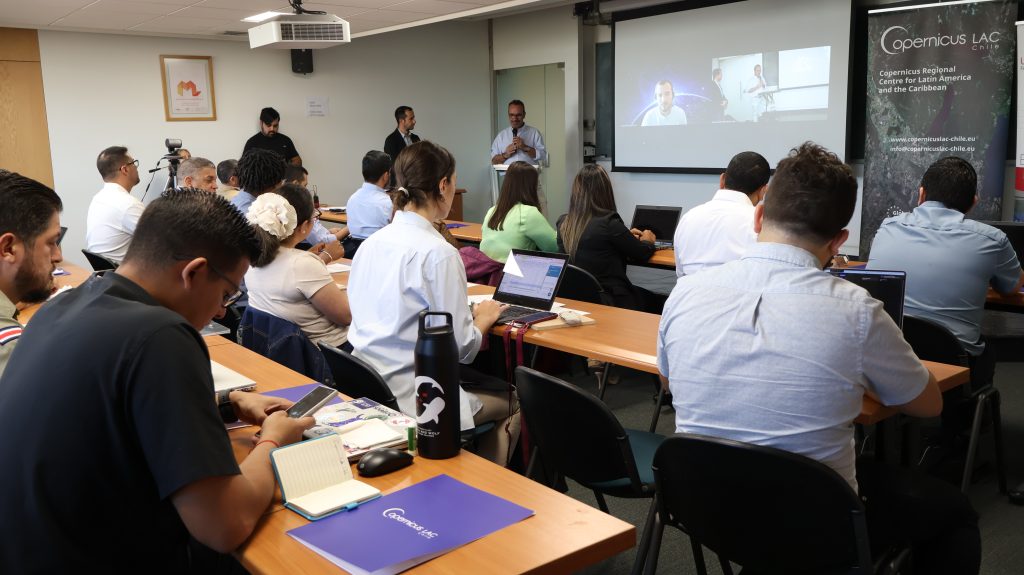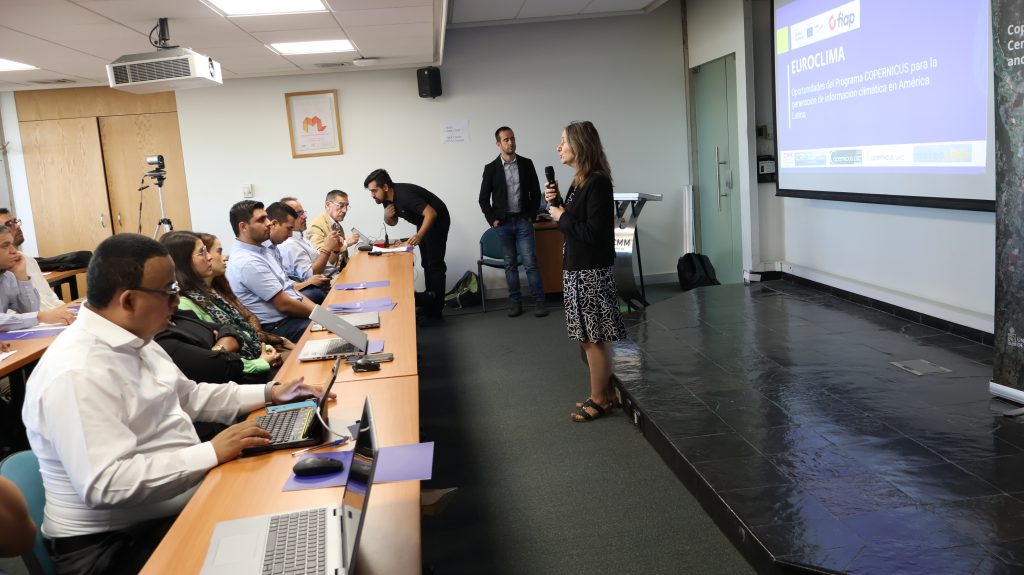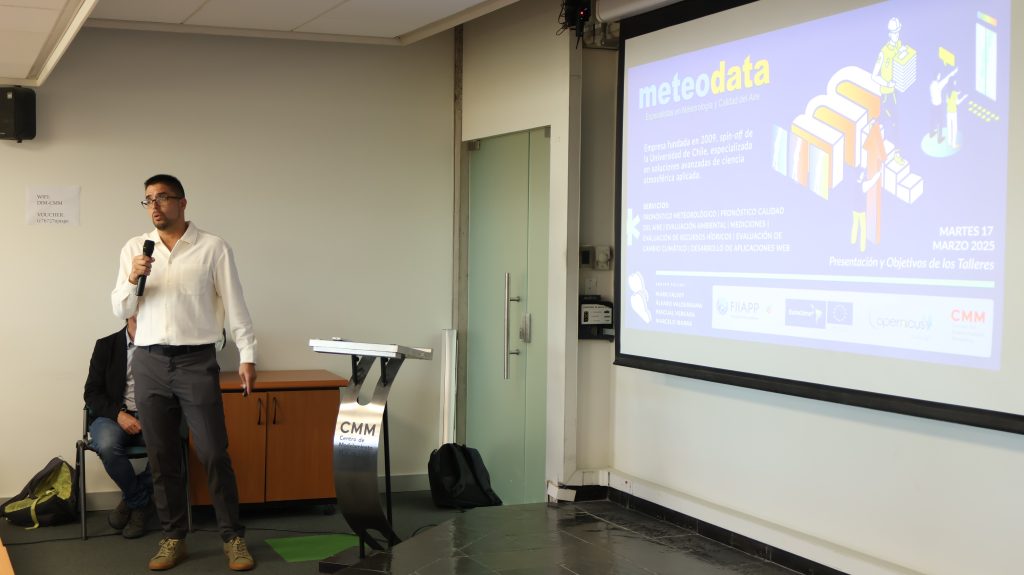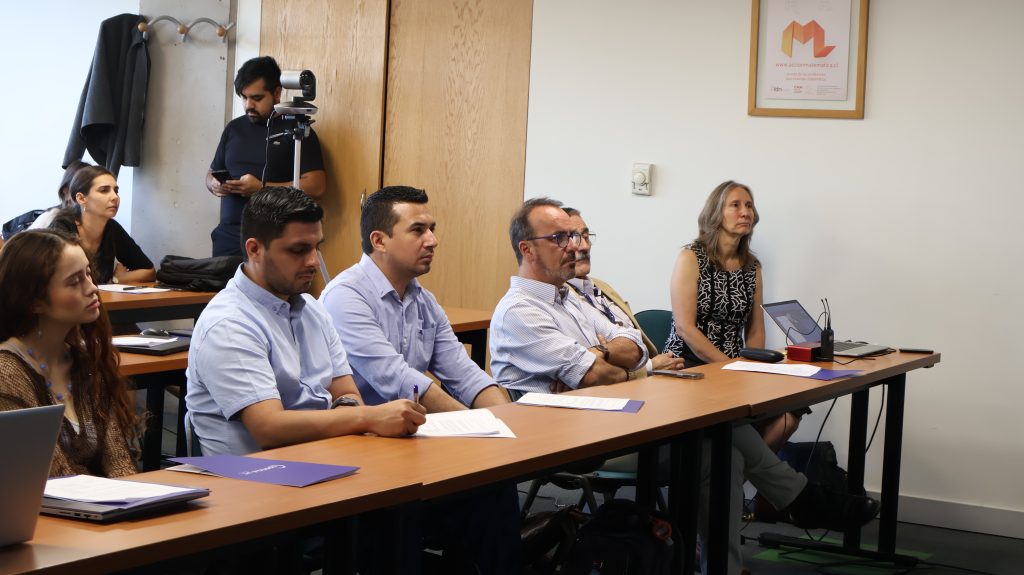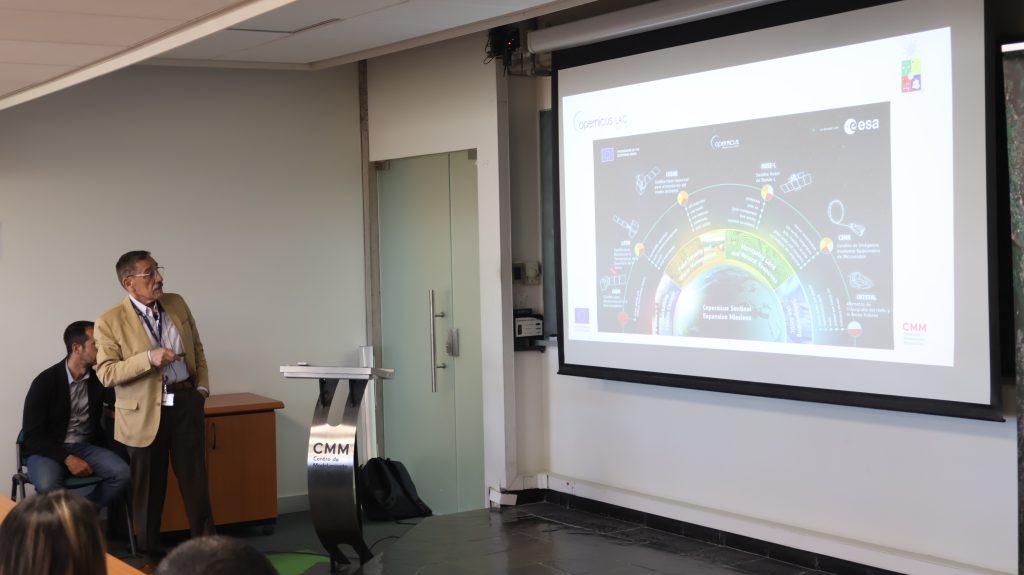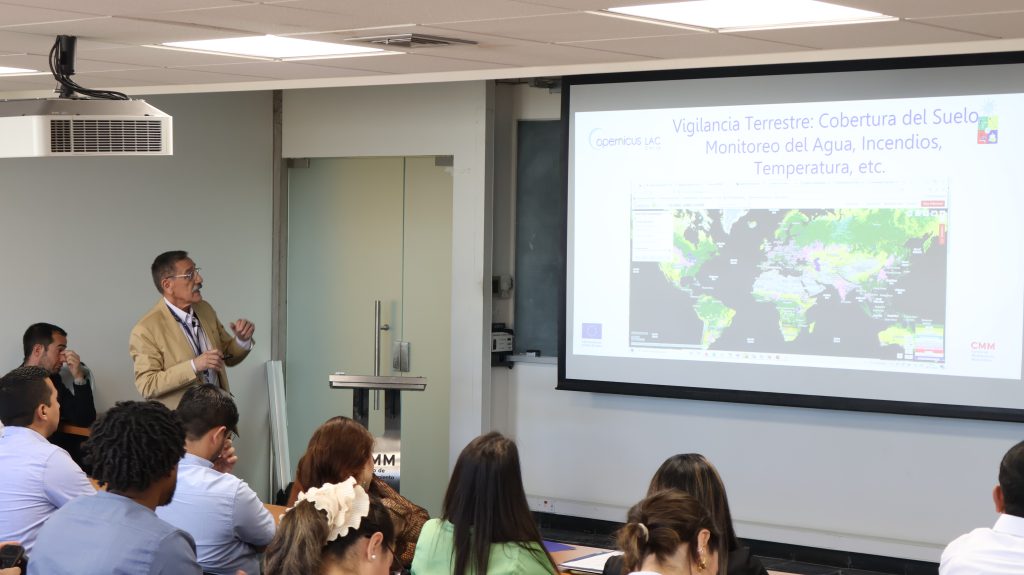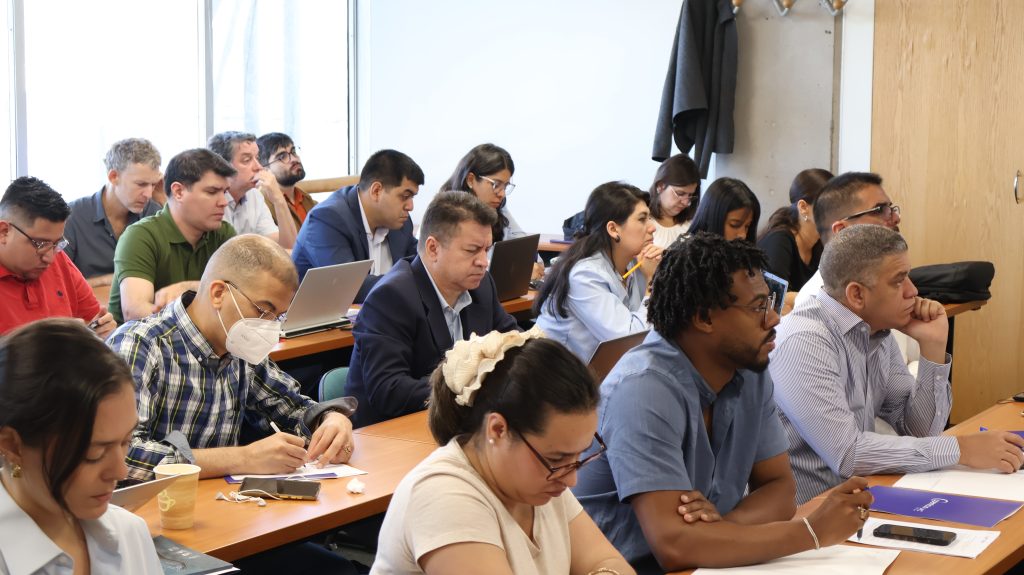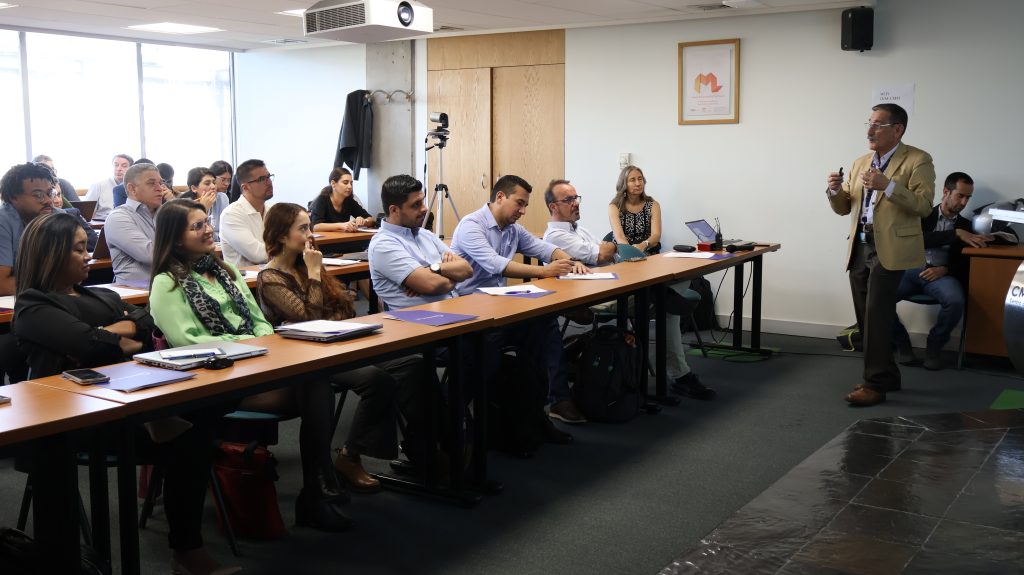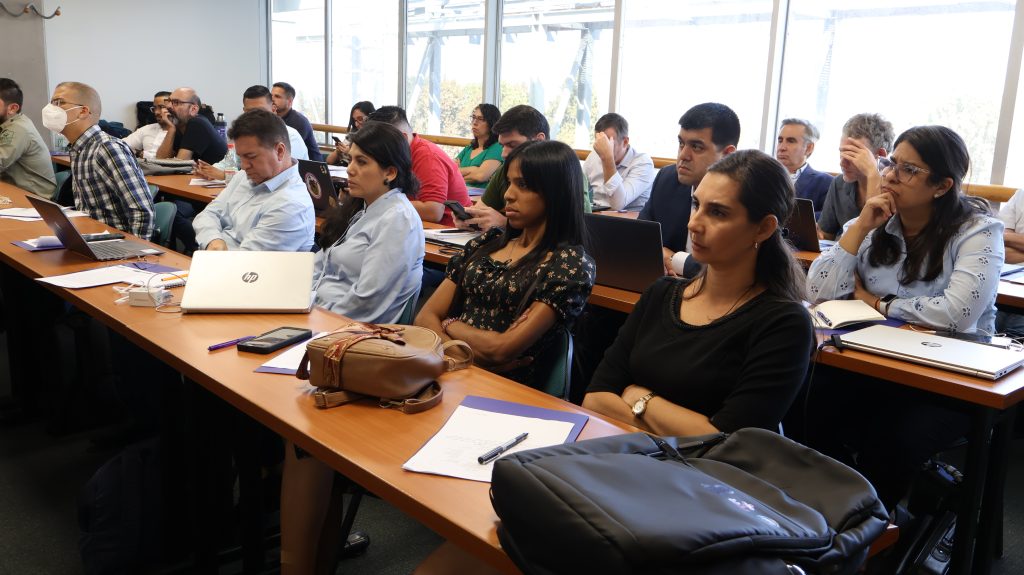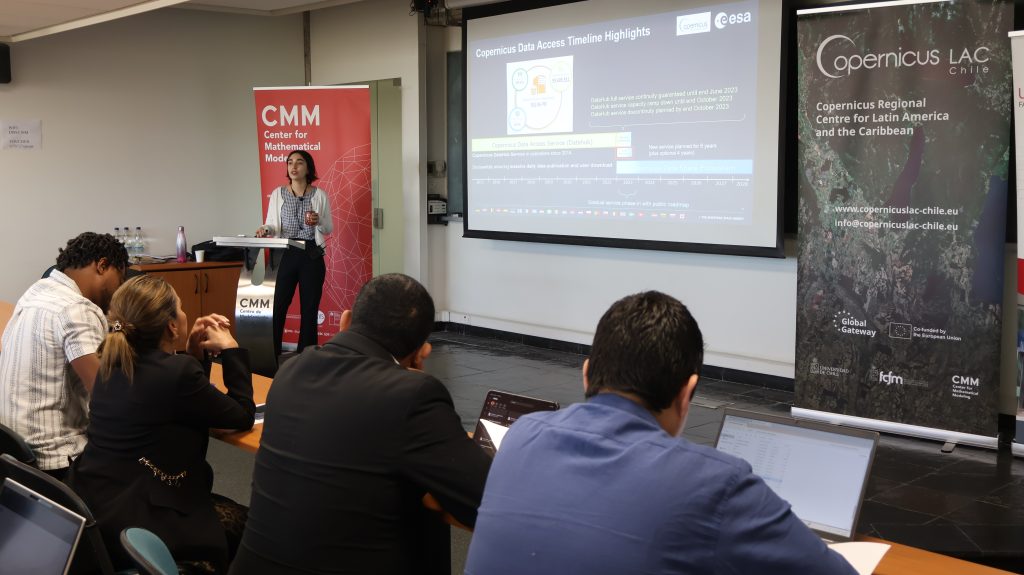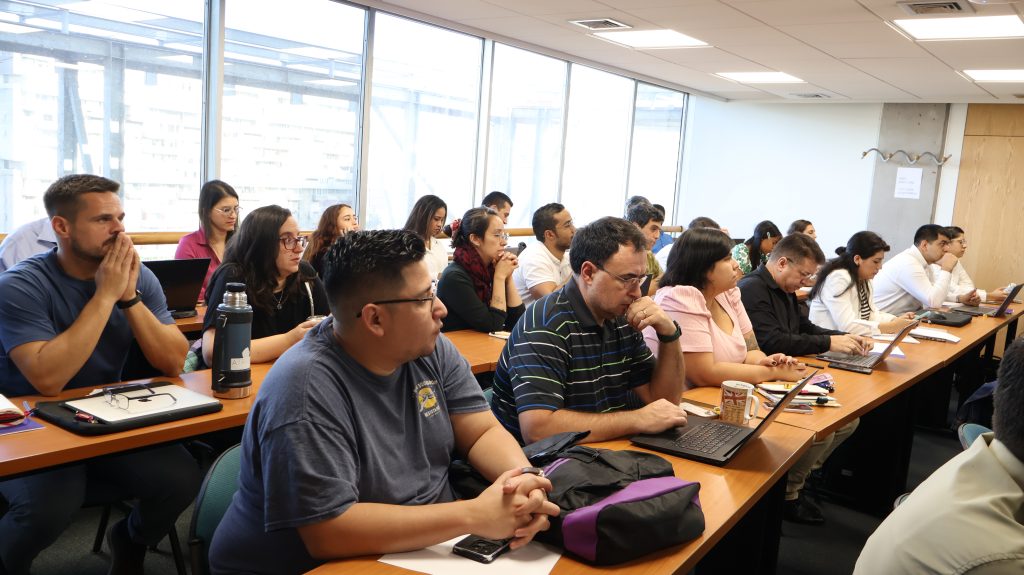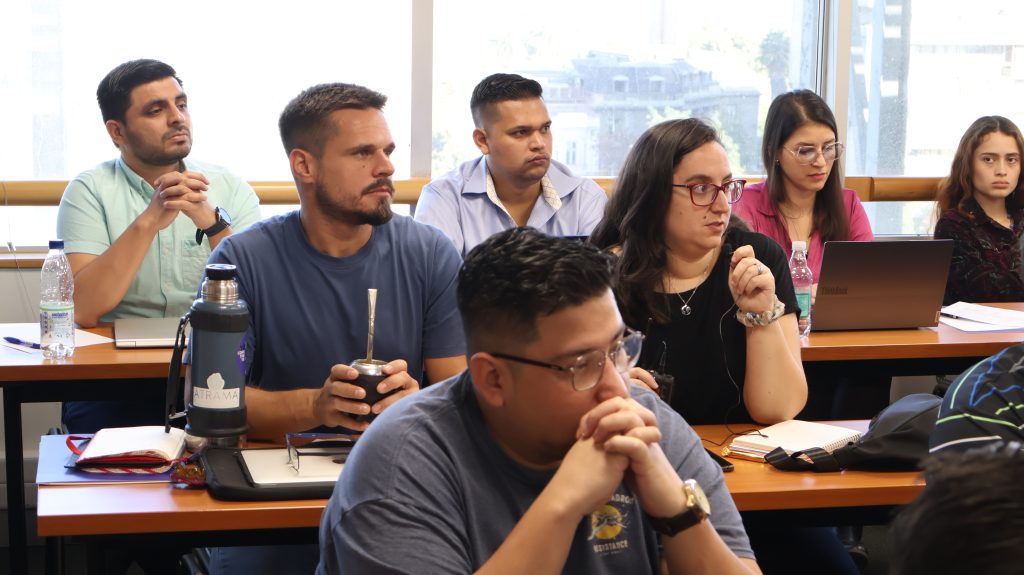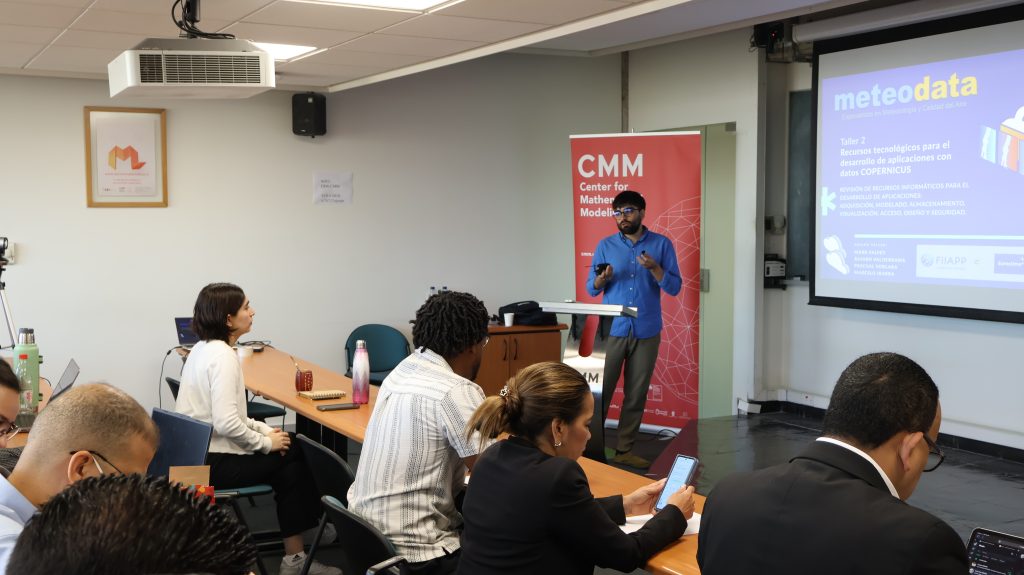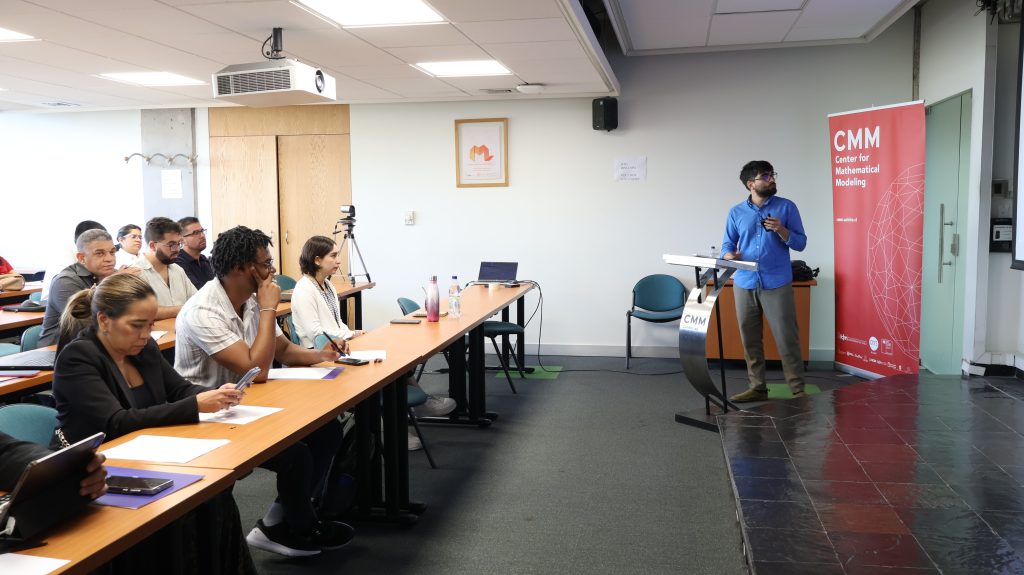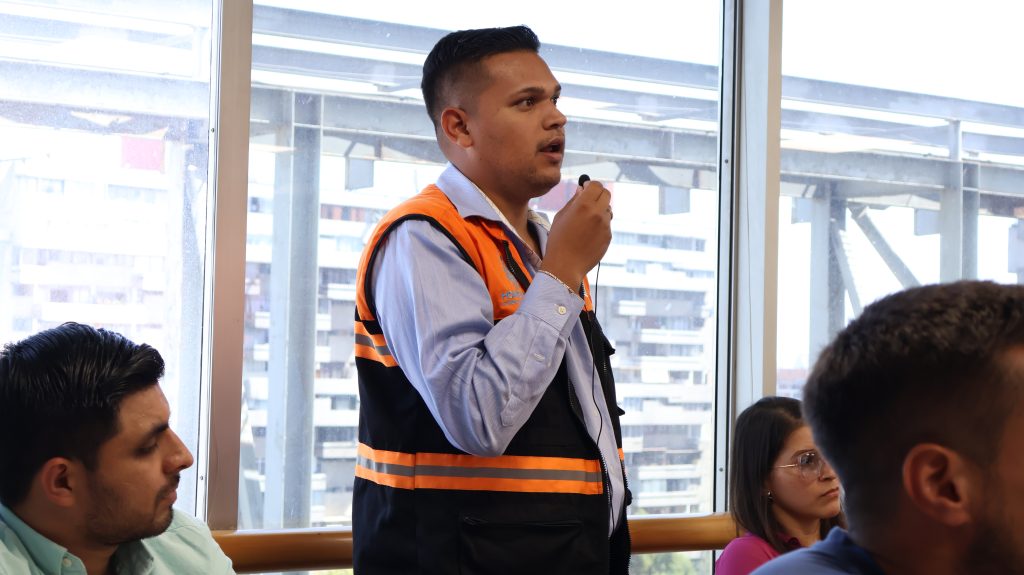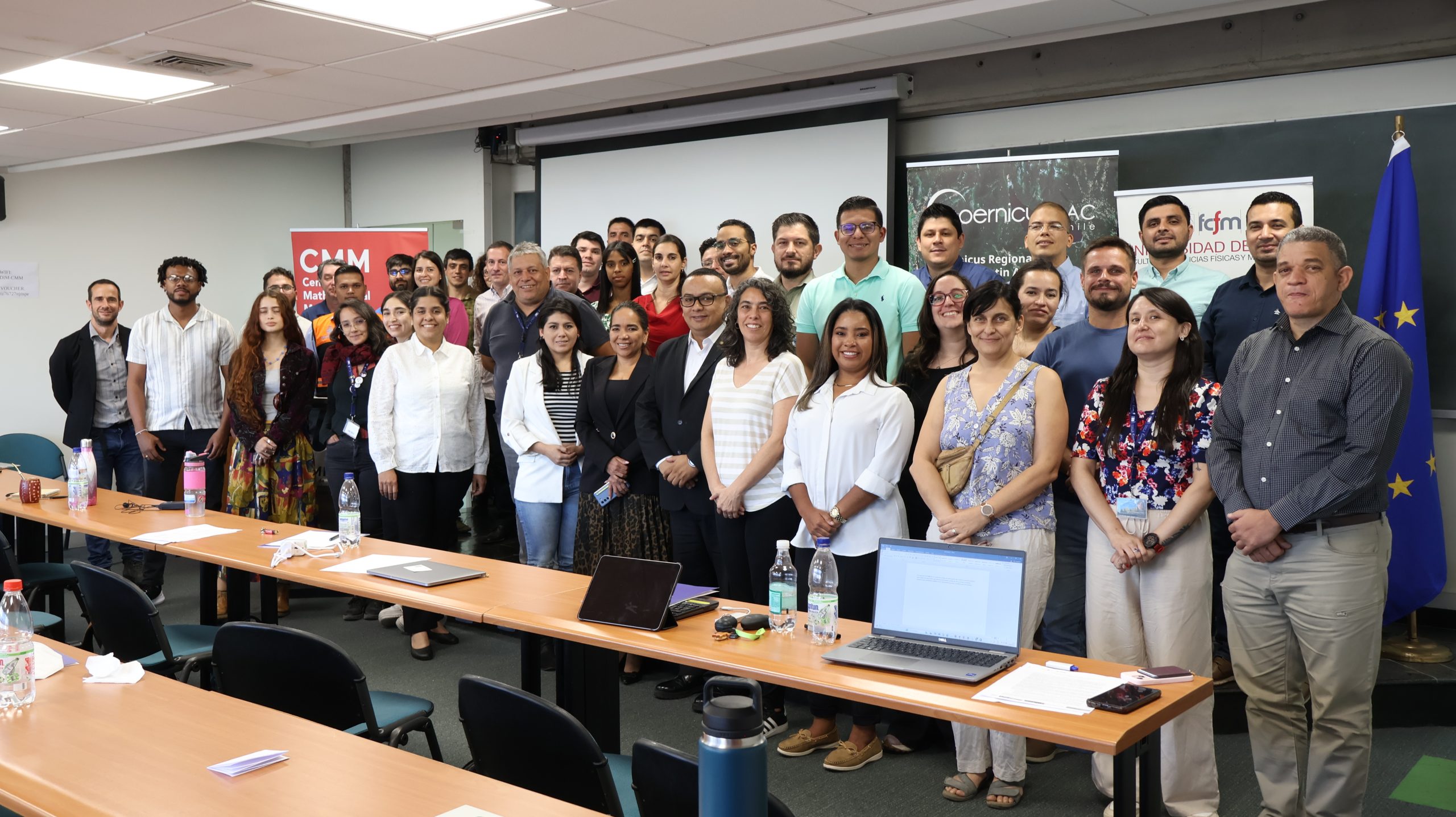A regional workshop organised in Chile by the Euroclima Programme brought together representatives from 13 countries in the region.
On 18 and 19 March, the workshop “The opportunities of the Copernicus Programme for the generation of climate information in Latin America” was held, which served to boost the effectiveness of climate policies in Latin America using information generated by the European Earth observation programme Copernicus. These training sessions, organised by Euroclima, the European Union’s flagship programme for cooperation with Latin America in the field of climate policies, brought together in Santiago de Chile representatives of environment ministries and other public sector bodies from thirteen countries in the region.
“The Copernicus programme provides and processes high-precision global satellite information, enabling the development of advanced earth monitoring products and services in any region. Creating synergies between the information provided by Copernicus and that managed by the different public institutions in the countries of the region in charge of elaborating and implementing climate policies will substantially improve the quality of these, which will be based on the best data”, said Elsa Velasco, Coordinator of the Euroclima Programme at the International and Ibero-American Foundation for Public Administration and Policies (FIIAPP), a Spanish cooperation organisation that is one of the eight implementing agencies of the Euroclima Programme.
In the framework of the Copernicus programme, open-access information from the six Sentinel satellites on the state of the Earth is obtained and processed as a powerful tool for obtaining and analysing open-access environmental data.
This workshop, organised by the Euroclima Programme through the Fundación Internacional y para Iberoamérica de Administración y Políticas Públicas (FIIAPP, an organisation of the Spanish international cooperation system that is one of the implementing agencies of Euroclima), had several main objectives.
First, guidance was provided for the adoption of existing Copernicus products in national climate transparency platforms, i.e. the systems that process and disseminate information on climate developments in each country. Options for the development of ad hoc regionalised products for national climate transparency platforms or national spatial data systems were also explored.
Another objective was to disseminate and promote the progress in the development of Copernicus regionalised products for Latin America, thus promoting their knowledge and use by the countries of the region.
Finally, work was carried out on synergies between programmes funded by the European Union in the framework of Global Gateway, a programme that aims to promote smart, clean and secure connections in the digital, energy and transport sectors, as well as to strengthen health, education and research systems globally.
Regional workshop in Santiago de Chile
The workshop agenda included sessions on issues such as the history and objectives of the Copernicus programme, the deployment of the programme in the region (regional nodes in Chile and Panama), how Copernicus contributes to climate change monitoring and how the programme can be used to improve climate transparency platforms, as well as technical sessions on specific programme products and tools.
Participants in the workshop, which took place at the Center for Mathematical Modeling (CMM) of the University of Chile, included developers and users of climate data platforms in public institutions in charge of climate policy design and implementation, experts in remote sensing and environmental monitoring, and representatives of the Copernicus Programme and its regional nodes in Latin America (CopernicusLAC Chile and CopernicusLAC Panama).
In this regard, the director of CopernicusLAC Chile, Florencio Utreras, said that ‘We are very pleased to host and participate in this type of event, which allows us to highlight the importance of the services that Copernicus provides to Latin America and the Caribbean. In a context of climate change, high quality information is essential for decision making and building a more sustainable future’.
The objective of the workshop fits perfectly with those of the European Global Gateway strategy, which seeks to strengthen smart, sustainable and secure connections in key sectors such as digital, energy or transport, in addition to promoting a just ecological and digital transition in different regions of the world, facilitating access to advanced technologies and fostering international cooperation to promote sustainable development and climate resilience.
In this regard, the head of the Adaptation Department of the Climate Change Division of the Chilean Ministry of Environment (MMA), Maritza Jadrijevic, who was also part of the workshop, said that ‘this type of collaboration is fundamental, as it not only provides valuable tools, but also allows the exchange of experiences with other countries in the region, strengthens initiatives aligned with projects such as Copernicus and facilitates the articulation between different institutions. It is an excellent starting point, and we are ready to continue moving forward together.
Among the institutions that collaborated in the realisation of the event were the Chilean Ministry of Environment (MMA), the Centre for Mathematical Modelling, the Copernicus Regional Nodes for Latin America in Chile and Panama, the Center for Climate and Resilience Research (CR2) and the company Meteo Data.
